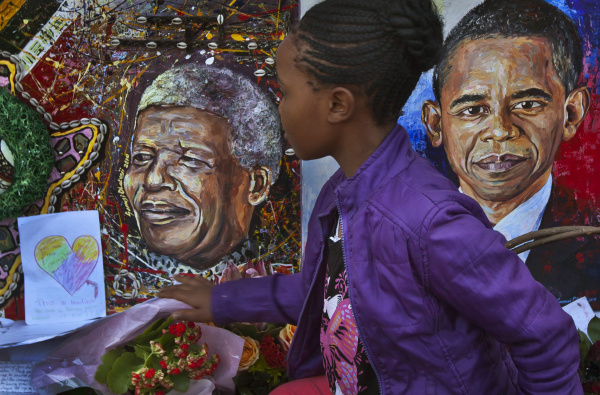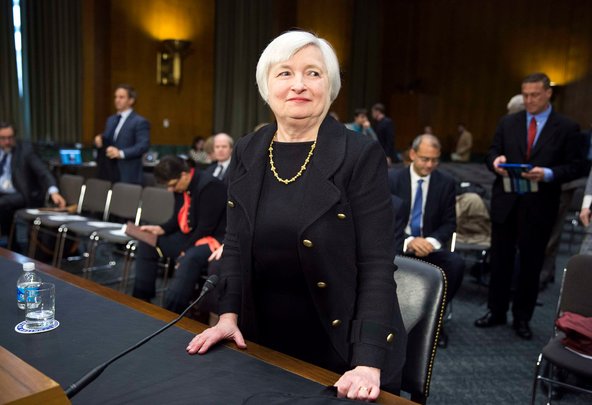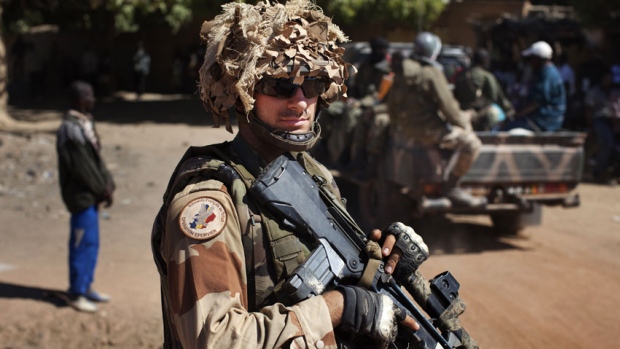Over the last few months, Africa has found itself home to multiple note-worthy events. She saw an immensely low, trying time when her foremost freedom fighter, ‘Tata’ Nelson Mandel, (Tata being a term of endearment used by many South Africans for Mandela) was admitted into hospital and deemed incurably ill. It also saw a true reason to celebrate when President Obama made his second official state trip to Sub Saharan Africa. Yet for some, President Obama’s visit fell into the category of a “low, trying time”.
Many Africans rejoiced at the arrival of President Obama into their countries, with Senegalese citizens sporting banners saying “Welcome Home, Mr. President” and Tanzania nearly declaring a public holiday, but not everyone in Africa was celebrating. This was partially because offence was taken from the fact that his tour was “too little too late” and many states felt neglected by Obama during his first term. But it was also more than that. For some in Kenya, it was considered a reminder of Africa’s standing in the world. Kenya, despite being the homeland of Obama’s father, was shunned on President Obama’s visit and it was understood that this was a punishment for their recent elections. The population recently elected a President and Vice President who were both wanted by the International Criminal Court for crimes against humanity which they committed during the disputed 2007 post-election violence. The US and UK had both issued subtle warnings against their election, with the United States’ most senior diplomat for Africa, Assistant Secretary of State for African Affairs, Johnnie Carson saying in public statements that “choices have consequences”.
This statement proved to be a largely empty threat as other than Obama’s visit, business has continued as usual between the two countries. Despite this, one enraged columnist wrote in the leading newspaper in Kenya, The Daily Nation, in response to Obama’s decision not to visit Kenya: “…it is assumed, (Africans) have no dignity. Their noses can be tweaked and rubbed in the mud so long as they are given a few coins in either real aid or as loans disguised as aid…We have learnt how to govern ourselves and …(it) is much better to die in poverty than to live in the servitude of the last 50 years. The presumption that other people know what’s best for us is the ugliest insult ever perpetrated on a people.”
Such reactions shed light on a wider global phenomenon. When one thinks of Africa today, the next thought that pops into one’s mind is China and its investment in Africa. The Chinese have grown their trade with Africa from $1 billion in 1980 to some $200 billion today. How and why? Because they know what Africans want: they want trade, and no political intervention. Most importantly, they do not want to be told what to do, nor how to do it. At the height of the Darfur Crisis, China was in exactly the right place to pressure the Sudanese government to solve it. It had provided Sudan with an interest-free unconditional loan of $13 million for infrastructure projects, including a new presidential palace. China could have pressured President Bashir to accept international peacekeepers or suspended military cooperation until the Darfur crisis was resolved. But it chose not to. The US on the other hand has a reputation of picking and choosing when it will trade with “rogue” states and when its role as defender of the free world forbids those interactions. This illustrious history of inconsistent intervention and disciplinary action can be contrasted to China, who will continuously trade with “misbehaving” states such as Sudan and Somalia. And Sudan and Somalia will trade back. Why? Because China makes no comment on how they run their internal business, at least on a humanitarian level, even if they may be seeking to have a say on economic issues.
Thus, the elephant in the room regarding Sino-Africa relations remains “Do African countries realise that China is exploiting them?” The reality is that they would have to be blind not to. But they can bite back with a very real comparison. Western loans to, and investments in Africa have never been exploitation free either, yet what does Africa have to show for Western intervention in Africa? Debt. What can they show from Chinese intervention? Infrastructure.
[captionpix align=”left” theme=”elegant” width=”320″ imgsrc=”http://natoassociation.ca/wp-content/uploads/2013/07/China-and-Africa.jpg” captiontext=”Chinese and African workers working alongside each other on infrastructure projects”]
This situation should be of growing concern to NATO allies. With 2013 already well underway, the economic situation globally is not significantly better than it was at the end of 2012. The world is clearly still in a recession. And according to many esteemed analysts, emerging markets are the answer to at least some of the West’s economic problems. It cannot be denied that China is booming and its trade with Africa must be a contributing factor. By 2050, the leading economies of the world will include Nigeria and Mexico alongside the US and China, with the UK and her other European counterparts simply nowhere to be seen. Banks tell their private finance clients to invest in real estate in emerging markets. Africa is no longer to be viewed as some sort of Joseph Conrad style “disease ridden backwards land”, but to be recognised as a continent where in many capital cities like Abuja and Nairobi, there is an emerging middle class with a disposable income and a lack of services to spend it on. Why do we read about talks that aim at creating the world’s largest free trade zone between the European Union and the US when perhaps it is time to hear about trade with new emerging markets?
While Western states struggle with whether their moral compasses allow them to trade with other countries without concern for the internal political situation (which in turn may be tainted by their own needs and interest), a new realisation needs to dawn on them. That realisation is that the future is in emerging markets. Trade should be encouraged in these countries, as long as it does not contravene the ethical restrictions that Canadian companies themselves have, such as objections to bribery. The NCC next month is holding an event for Canadian companies entitled “Business opportunities in the Common Wealth”. Perhaps this is the much needed push to encourage citizens of NATO member countries to look upwards and outwards to India, to Botswana, to Rwanda, to Samoa, to new markets and new possibilities and to where the real opportunities lie. To ensure success in these regions though, they must ensure they are giving Africa a deal they cannot refuse – limited political intervention on how to run their country; and greater, tangible returns for their resources.




